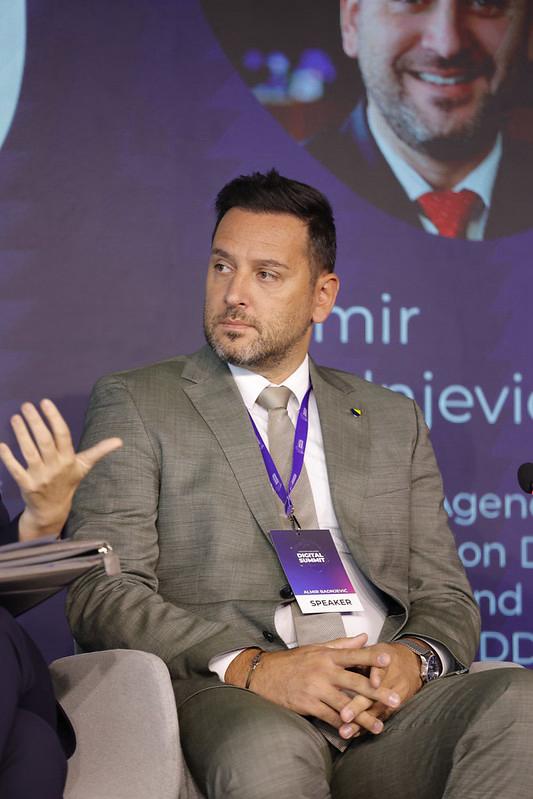The Western Balkans Digital Summit, the leading regional event dedicated to digital transformation, strengthening cooperation, and European integration, was held in Skopje on October 1 and 2.
Bosnia and Herzegovina was represented on the ministerial panel by the Director of the Agency for Identification Documents, Registers and Data Exchange of BiH (IDDEEA), Prof. Dr. Almir Badnjević.
During his presentation, Director Badnjević particularly emphasized that the term “Balkan Digital Wallet” does not exist at all and that such an idea has neither legal nor technical grounds. He explained that all countries, whether EU members or not, must align with the eIDAS 2.0 regulation, and that every institution which completes the accreditation and certification procedure in line with these rules receives recognition throughout Europe. “The Balkans do not have their own specific laws to which we could adhere. If the same process is recognized within the EU, but not in countries outside the EU, that is open and complete discrimination,” Badnjević stressed.
He also presented concrete achievements of Bosnia and Herzegovina in digital transformation, underlining that IDDEEA has already developed a wide range of digital services:
- the e-IDDEEA application for digital identity, qualified electronic signature, and mobile digital wallet,
- services such as eMother, eBaby, online credit services,
- digital certificates, attestations, extracts, and many other solutions enabling citizens to exercise their rights electronically, without paperwork and without visiting counters.
Badnjević emphasized that the countries of the Western Balkans must not be placed in a subordinate position in the process of digital integration and that full support from the EU is expected in applying solutions that are already proven and functional in the region.
He also specifically pointed out the issue of abolishing roaming with the EU. Although the Western Balkan countries applied almost a year ago, there has been no progress. Unlike them, Moldova and Ukraine will gain this possibility as early as 2026, placing the region in an unequal position and directly slowing down digital integration.
“Our message is clear – the Western Balkans expect to be treated equally and to build a digital future together with the European Union, in line with European standards,” concluded Badnjević.

